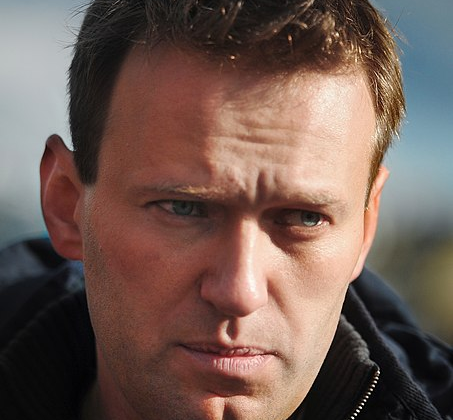
I can understand the shock of the world this past Friday over the news that Alexey Navalny, the latest of dissident contenders who had tried to challenge Vladimir Putin, had died in a likely assassination. But as someone who was born in Russia and left in 1991, I have heard enough whispers from relatives and learned enough about Russia’s twentieth century to know that this was, in so many ways, just business as usual. It is all part of the state-sponsored school of fear. For some, like journalist Sasha Vasilyuk, Navalny’s challenge to Putin represented a final shred of hope for a new, modern Russia that was maybe different from the old, more familiar authoritarian state of our childhood. Navalny’s death, then, means the death of that hope.
In Russia, it seems, history readily repeats itself, and in this history, opposition to the leaders has never been tolerated. Over the course of the 1920s, 1930s, 1940s, and beyond, one did not need to be a politically active opposition leader to earn a secret execution or a one-way ticket to the Gulags. So many ordinary people who happened to be in the wrong place at the wrong time, or perhaps made a foolish joke, received that fate.
One of the writers whose writings about the horrors of life under Stalin’s regime have become well known of late is Nadezhda Mandelstam, the wife of the celebrated poet, Osip Mandelstam, who died en route to a Gulag in 1938. Poets of his generation did not fare well—those who were not shot outright were exiled or committed suicide.
These poets, so many of them progressive and idealistic aristocrats who had supported the Russian Revolution, could not train themselves to stay quiet. Imagining themselves safe, they used literature and poetry to launch attacks on Stalin in a variety of shapes—including fiction or satire, in Mandelstam’s case. But no jokes, no satire, no criticism of any sort by any tongue or pen could be tolerated. It is, indeed, astounding to think of the lengths to which Stalin went to create a smoothly-oiled machine that kept track of any such transgressions to be able to document them and, of course, promptly punish. And so, everyone who had lived through Russia’s twentieth century has been well schooled in fear.
It was, finally, in the early 2000s that my grandmother, then in her 80s, agreed to record reflections about her life. She noted her sorrow: Russians of her generation had become people without family history or even without memory of personal past. For too many, after all, there were dangerous secrets in their past—the arrest of a loved one or a friend or a colleague, perhaps. It was safer, therefore, not to think about one’s relatives or ancestors, and just try to live quietly—“quieter than water, lower than grass,” as the popular proverb goes, and the title of a poignant essay by Olga Zilberbourg, a Russian Jewish immigrant writer of my generation. To live in Russia, Zilberbourg said, was to live in fear. It still is.
I left at a younger age than Zilberbourg did. Her family stayed through the collapse of 1991, whereas mine left just before. Thus I did not witness or internalize as much as she did. But generational trauma persists for all of us who immigrated. Keeping up with the news of the past few years, especially the horrific invasion of Ukraine, brings our respective family histories to the forefront of our thoughts, even as we feel an irrational guilt for our own safety alongside a well-justified fear for the safety of friends or relatives left behind.
Almost a year ago, I tried to articulate this fear as I saw it come through in Russian lullabies of my childhood, these lullabies that I sing to my American children who don’t understand mom’s language, and who didn’t understand when they were younger why mom sometimes cried while she rocked them to sleep. But babies don’t keep, and increasingly, instead of a lullaby with mom, they would rather have a prayer with dad.
What is it like to live in an authoritarian state? It is to always be afraid. It makes sense that it was an American who said “the only thing to fear is fear itself.” No one who lived in Russia would ever say that. Whether for those who left or those who stayed, there is a long list of fears, and at the top of this list is the Russian state.
